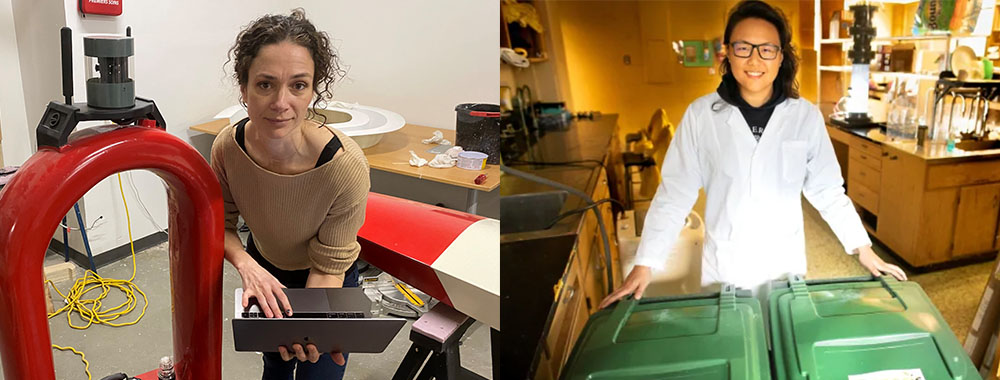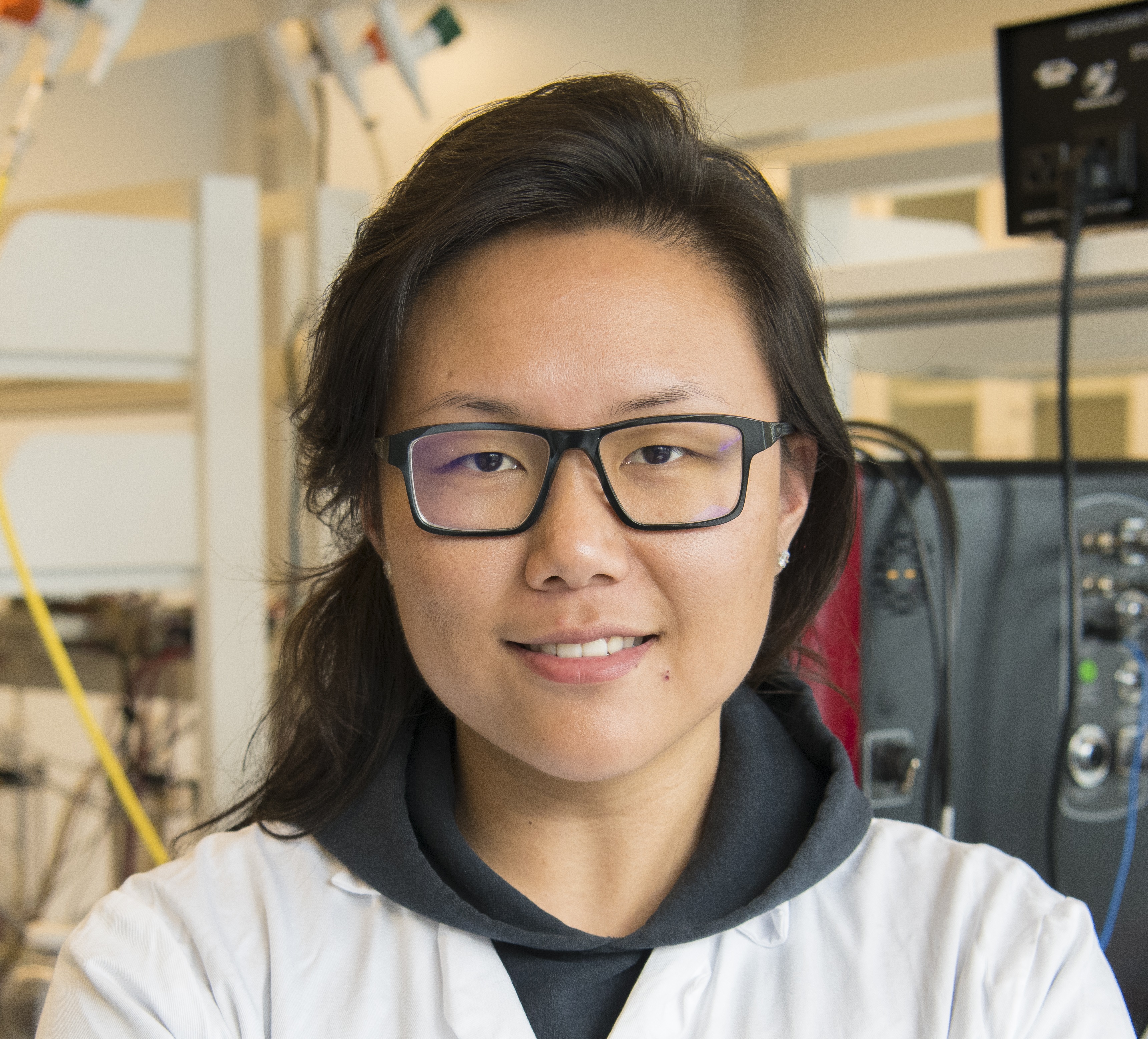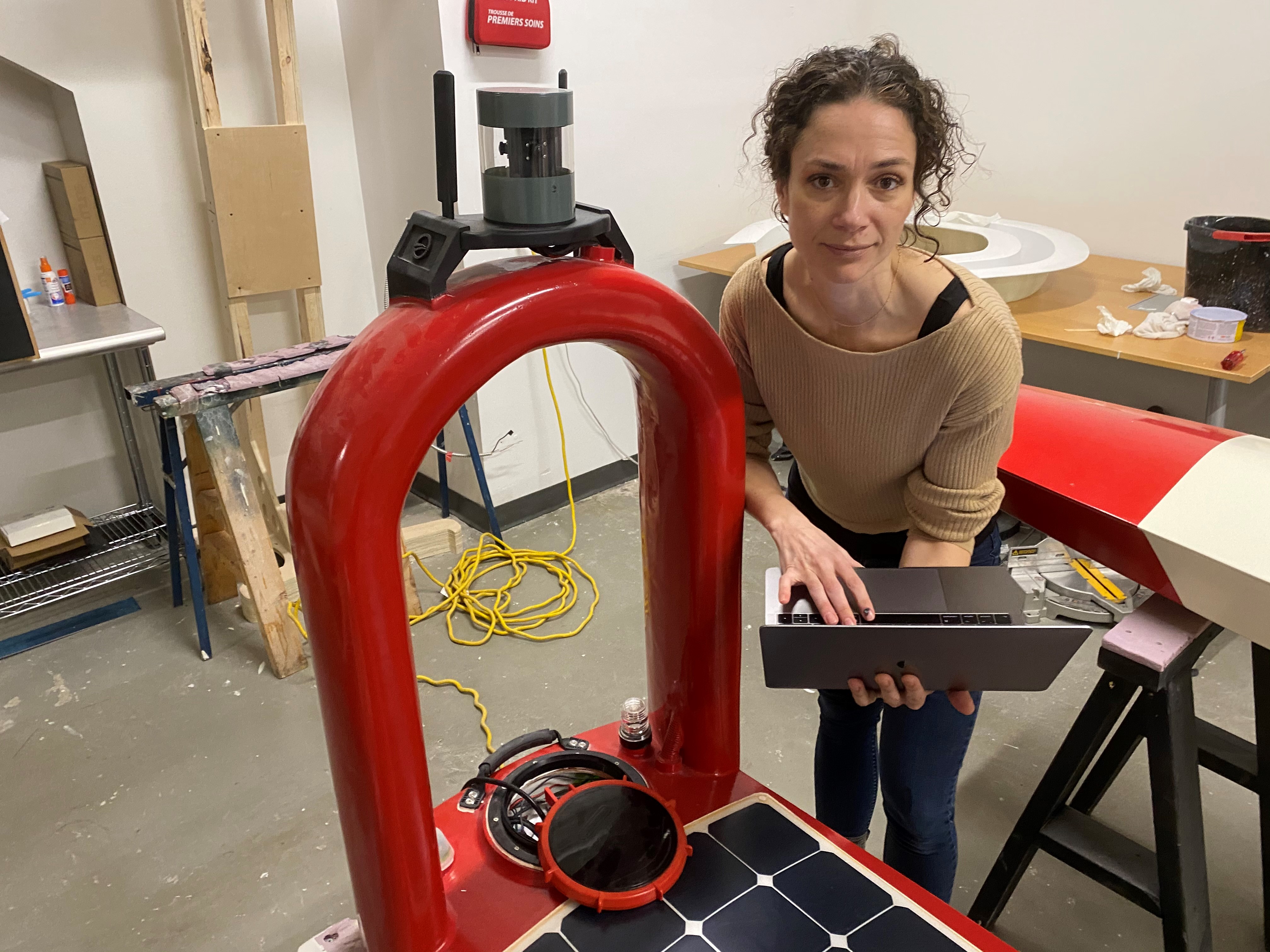Women to watch

Follow:
As female CEOs, Julie Angus and Luna Yu are often considered outliers, but that hasn’t stopped them from building successful cleantech businesses

They’re friends, scientists and entrepreneurs, but Julie Angus and Luna Yu now have something else to bond over. They are the only two woman CEOs at the helm of Canadian companies included in the Cleantech Group’s annual 50 To Watch list. Released in late January, the list highlights private early-stage innovation companies developing high-impact solutions that tackle the world’s most pressing problems.
Yu heads Genecis Bioindustries of Toronto, which uses bacteria to digest food waste, and turn it into biodegradable plastic resin and fertilizer. The resin can be used to make tableware and containers, among other items.
Angus, who in 2006 became the first woman to row across the Atlantic Ocean from mainland to mainland and has spent thousands of hours exploring the ocean in small boats, is co-founder and CEO of Open Ocean Robotics, based in Victoria, B.C. The company builds ocean drones — crew-less, solar-powered boats equipped with sensors or cameras that can track illegal fishing, detect and clean up oil spills and map uncharted waters.
Here, Yu and Angus share their insights on what it means to make the 50 To Watch list, Canada’s cleantech sector and what it’s like being a woman CEO in a male-dominated business.

On making the 50 To Watch list
Julie Angus: It’s a great honour to be named to the 50 To Watch list, and be identified as one of the companies that’s tackling these tremendously challenging global issues.
It’s a recognition of how we need to focus more on our oceans. Understanding them and being able to document the changes is critical to conserving and protecting them. Our company makes it easier, more affordable and safer to get that ocean data. As it is now, more than 80 per cent of our oceans are unmapped, unexplored and unobserved. Technologies like ours can overcome those very significant challenges.
Luna Yu: The reason we’re on the list is the people behind Genecis — our partners, our early customers and our amazing team. One of our partners is Sodexo [a Paris-based food services multinational that has pledged to halve food waste from its operations by 2025 and to reduce its carbon footprint by a third]. They’re a global company, and they’re pushing a circular economy solution. They’ve been incredibly supportive. Our team is really hard working. We all work beyond 40 hours a week. There are lots of failures, but we never give up.
On diversity in cleantech
JA: Only about five per cent of cleantech companies are founded by women, so there’s definitely a need to encourage more diversity. I’ve been to events where I’m the only female CEO in the room. Whether it’s age, gender, race or culture, we should strive to have more diversity. There are lots of studies that indicate that companies are more successful with that type of diversity. Programs like the Women in Cleantech Challenge [organized by Natural Resources Canada and MaRS, a Toronto-based innovation hub] that both Luna and I are part of are tremendously valuable in promoting that.
On memorable mentors
JA: Having a network and strong mentors, both female and male, are very important. One woman I really look up to is Jane Kearns [vice-president for growth services at MaRS], who is quite involved in the Women in Cleantech program. She built a cleantech company. Now she’s helping run a portfolio of companies through MaRS. It’s really inspiring how she forged a career in what at that time was a very male-dominated field, even more so than it is now.
LY: A woman who has played a big role in my life is Roberta Fulthorpe, who was my environmental science professor at the University of Toronto. She was our first adviser at Genecis and supported us when no one else was willing to, giving us guidance and technical help. She really put herself out there for us. I don’t see that degree of courage and risk-taking very often, especially in the academic area.
On being a female CEO in Canada.
LY: Being a woman CEO is, if anything, an advantage because it really helps us stand out from the rest. There’s a lot more recognition for women entrepreneurship thanks to programs like the Women in Cleantech Challenge. The fact that this kind of funding program is not accessible to male entrepreneurs could really be an advantage.
JA: Under-representation can make it challenging for other women to decide that they want to be entrepreneurs. But the more we highlight women who are in these positions, the more we encourage others to strive for these goals. As female CEOs in Canada, we’re in a very privileged position where we can talk to other women and demonstrate through our actions why they should also follow this path. We do have an advantage in Canada in that not only our population, but also our government and our companies, really support and encourage diversity.
On advice for aspiring female entrepreneurs
JA: My advice to other women is that they should go and pursue their dreams and not see gender or anything else as a limiting factor. They should surround themselves with people who can mentor and encourage them. Also, never give up, because no matter who you are, you’ll face challenges. And the important thing is to persevere and continuously learn from the setbacks. That will make you stronger and more likely to succeed and reach your goal.
LY: You have to blaze your own trail. One of the key things I realized after starting Genecis is that you can’t keep following in someone else’s footsteps. At some point in time, you have to take risks. One of the biggest challenges we faced was two years ago, during the startup phase of Genecis, when we had an accident where a couple of our teammates were physically hurt. That really set us back. The key lesson that we’ve learned was that as much as we want to move fast and break things, sometimes the better solution is to go slow and steady and to make sure that we don’t overlook really important things.
On effective leadership
JA: I’m continuously learning how to be a better leader and a better CEO and how to help our team work better together. Right now we’re working on a very tight timeline to do a pilot project for the Canadian Coast Guard, and everybody has to really collaborate. I’m learning how to encourage that collaboration and identify people’s skills and strengths. I’m also learning that I can’t do everything. For example, we’re doing hydrographic survey training this month, which I really wanted to be a part of so I could learn it inside and out. But at the same time, I’m presenting at a conference in San Diego, and I obviously can’t do both. I have to recognize what my job is and what my priorities are and then be able to let go and let other people play a key role in those other areas.
On relying on each other
LY: Julie and I are literally each other’s first line of contact whenever we have an issue.
JA: That’s true! Luna and I see each other about four times a year. We talk about the shared challenges we have, the shared successes and how we deal with certain issues. It’s really valuable to have a network of people who are going through similar things. There’s nothing that compares to being able to talk to somebody who’s had similar challenges and learning from what they did.
Related links
Connect with the Trade Commissioner Service (TCS)
Questions or need support
- Contact a Trade Commissioner for answers to your export questions
- Subscribe to CanadExport: The official magazine of the Trade Commissioner Service
Join the conversation
- Connect with the TCS on LinkedIn, Facebook and X (Twitter)
- Follow the conversation on social media: #womenexporters
- Date Modified:


